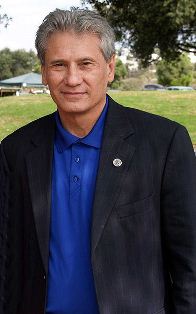 |
TULSA, Okla. (AP) -- The Cherokee Nation missed deadlines last week to notify roughly 1,200 descendants of black slaves once owned by the Oklahoma tribe's members that they could vote in a special election for their new chief and to send absentee ballots to some of them.
Now, attorneys for both sides are back before U.S. District Judge Henry H. Kennedy to decide what to do for the remainder of the election. A ruling could come as early as Tuesday.
Last week, Kennedy signed a court order between the Cherokee Nation, U.S. government and the slaves' descendants, known as freedmen, that guaranteed the freedmen full citizenship in the tribe. The agreed order stated the Cherokee Nation would mail out absentee ballots and letters telling the freedmen they had full citizenship rights and that they could vote in the upcoming election, and that those ballots would be received no later than Thursday.
But it was apparent by late Friday many of the freedmen did not receive ballots or any correspondence from the Cherokee Nation with the election occurring the next day.
Jon Velie, an attorney for the freedman, said he explained to the judge Friday that the tribe not only missed Thursday's deadline to notify the 1,200 registered freedmen voters, it also did not overnight mail any new absentee ballots to roughly 350 freedmen voters who had requested them. The election began Saturday and ends Oct. 8.
Susan Plumb, the chairwoman of the Cherokee Nation Election Commission, said a mechanical problem during printing delayed the mailing and that all of the letters were sent by Thursday.
"We did everything we could physically do to comply with the court order," said Plumb.
Velie said attorneys for the freedmen, the Cherokee Nation and the U.S. government offered the judge two options Monday to resolve the election issue. Both options include absentee ballots being mailed to all freedmen who had previously requested them but whose requests were not received by the election commission by Saturday's deadline, Velie said.
He said the Cherokee Nation has also suggested adding extra "walk-in" dates to give the freedmen an extra opportunity to cast ballots for chief. Those new dates are Sept. 29, Oct. 1, Oct. 4, Oct. 6, and Oct. 8, the day balloting ends.
Another option, which was originally promoted by the Cherokee Nation and is now endorsed by the freedmen, would allow all Cherokees to vote on the additional walk-in dates, Velie said.
"The Cherokee freedmen request this relief to reduce the possibility they will be targeted for special treatment," Velie said. "The freedmen believe that the court order issued last week where the Cherokee Nation stated that the freedmen were citizens and entitled to the same rights of all other Cherokees was a huge step to beginning the healing process.
"Voting together with the other Cherokee people helps sustain that process going forward," he said.
Last week's agreement was a temporary reprieve in the long-running debate over whether the freedmen should be given full membership rights in the one of the country's largest tribes. But the lawsuit brought by the slave descendants - to keep their right to vote and other tribal benefits after tribe members voted to cut them off - will continue in federal court.
The freedmen also are suing the U.S. government, citing an 1866 federal treaty with the Cherokee Nation they say guarantees their tribal rights. An attorney for the United States, Amber Blaha, told Kennedy last week that the Interior Department believes they have the right to full citizenship rights under the treaty and an election without their participation would be illegal.
Saturday's special election was ordered by the tribe's Supreme Court after recounts from a flawed election in June were reversed several times, with the longtime chief and his challenger each being declared the winner twice. Tribal experts believe the freedmen could swing the vote to new leadership of one of the country's largest tribes.
Chad Smith, who was chief until a temporary replacement was named after the June election, has campaigned for the last decade to remove non-Cherokee freedmen from the tribe's voter rolls. His challenger, longtime tribal councilman Bill John Baker, also backed their removal but not as vocally and is believed to have the support of many freedmen.
Baker and Smith have issued statements blaming each other for the election mess.
© 2011 The Associated Press. All rights reserved. This material may not be published, broadcast, rewritten or redistributed. Learn more about our Privacy Policy and Terms of Use.








